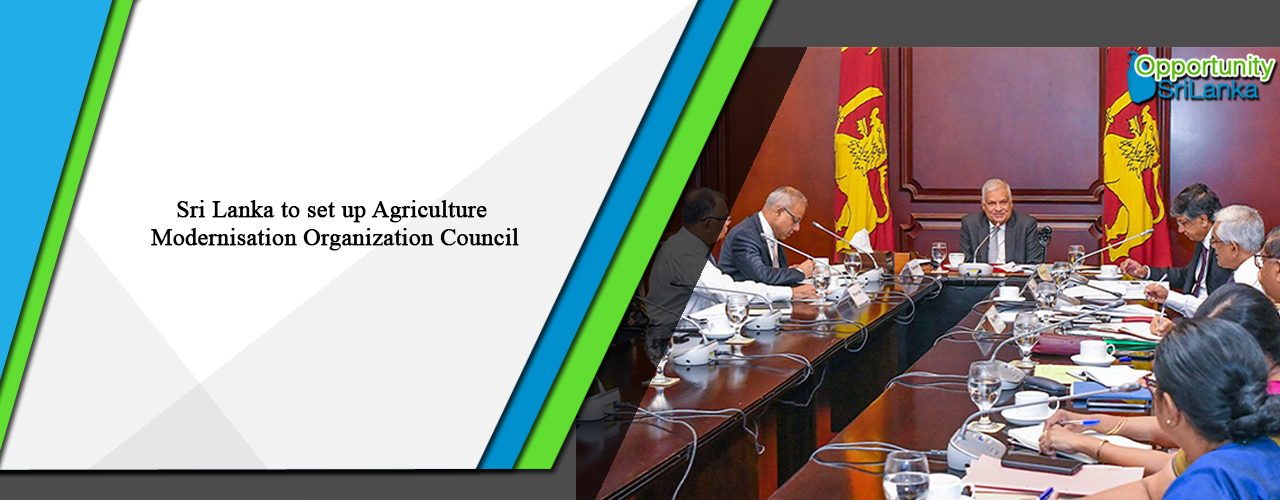Sri Lanka to set up Agriculture Modernisation Organization Council
The Morning: President Ranil Wickremesinghe has declared the formation of an Agricultural Modernisation Organisation Council, which will be chaired by both the President and the Prime Minister.
The primary objective of this Council will be to oversee the restructuring of ministries, institutions, and organisations associated with agriculture in Sri Lanka.
President Wickremesinghe made this announcement during a progress review meeting of the Agriculture Modernisation Programme held at the Presidential Secretariat on April 3.
He emphasised that the establishment of this new Council aims to enhance the efficiency of Government institutions involved in the agricultural modernisation initiative.
At the meeting, the Chairperson of the relevant Expert Committee, Senior Professor Gamini Senanayake presented the policy framework devised for the modernisation of the agriculture sector, the key objectives of which include enhancing the productivity and efficiency, promoting sustainability and resilience, fostering inclusive growth and rural development, ensuring food security and nutrition, improving market access and trade, strengthening the institutional capacity and governance, and fostering innovation and entrepreneurship. It was revealed that 26 projects have been meticulously chosen from 26 Divisional Secretariat Divisions, covering all 25 Districts, for the initial implementation phase of the programme. Funds have already been allocated to kick-start these pilot projects.
President Wickremesinghe further emphasised the necessity of transitioning from subsistence agriculture towards a more modernised approach that encompasses both large-scale and small-scale operations. He underlined the pivotal role of the agricultural export sector in the national economy, highlighting the urgent need for the rapid transformation of agriculture to align with the broader economic development agenda of the country.
During the deliberations, significant emphasis was placed on advancing and refining various facets of agriculture encompassing paddy cultivation, other agricultural crops, as well as dairy production and animal husbandry.
Moreover, the discussions revolved around the allocation of 500,000 acres of new land for cultivation. Plans were also devised to educate and train farmers in modern agricultural techniques.
Additionally, President Wickremesinghe engaged with officials on the potential for leveraging support from the private sector and attracting foreign investments to drive the agricultural transformation process forward. He highlighted the importance of the prompt restructuring of public institutions to facilitate the establishment of public-private partnerships and foster cooperation.
In addition to modernising agricultural practices, discussions also centred on the importance of value addition to agricultural products and the exploration of export opportunities.
Collaborative efforts with the private sector were highlighted as a means to streamline processes and eliminate or restructure redundant public institutions.
OSL take:
The growth in Sri Lanka’s agriculture industry given the growing demand has created a host of business/investment opportunities. There is a growing demand for consumption crop and export crop cultivation. It is the growing opportunities in the country’s agriculture industry that has resulted in the Sri Lankan government being focused on modernising the agriculture industry. Sri Lanka’s agriculture modernisation programme covers multiple sectors and as a result presents a plethora of business/investment opportunities for foreign businesses/investors looking at doing business with Sri Lanka. With the country working towards becoming a regional hub, the opportunities in the country’s agriculture industry is bound to further increase. Therefore, given the growth and business potential in Sri Lanka’s agriculture industry, foreign businesses/investors could confidently explore the expanding opportunities in the industry while also looking at forming collaborations with local businesses for further expansion.
| Article Code : | VBS/AT/20240419/Z_1 |

